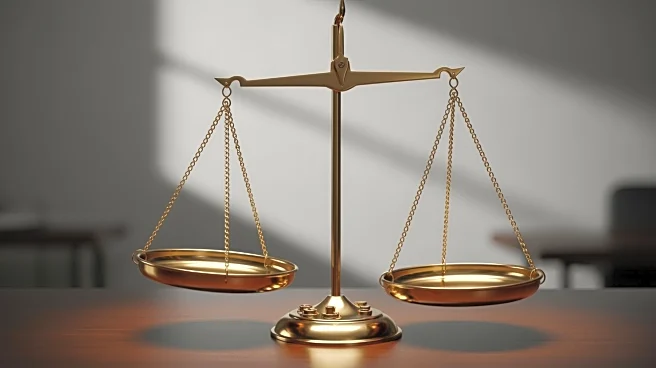What's Happening?
Speculators have significantly lowered the odds of President Trump successfully issuing $2,000 tariff rebate checks to Americans. Initially, the promise generated excitement, but recent developments have dampened
expectations. The odds market site Kalshi now estimates a mere 2% chance of the checks being distributed soon, down from 13% shortly after Trump's announcement. Treasury Secretary Scott Bessent has expressed skepticism, noting that the plan requires congressional approval and may take forms other than direct checks, such as tax relief measures. The financial feasibility of the plan is also under scrutiny, given the substantial national debt and the limited revenue from tariffs.
Why It's Important?
The declining odds of the tariff rebate checks being issued reflect broader challenges in implementing Trump's economic proposals. The plan's reliance on tariff revenue raises questions about its sustainability and potential impact on the national debt. If successful, the checks could provide financial relief to millions of Americans, but the legislative and economic hurdles suggest significant uncertainty. The proposal also underscores ongoing debates about the effectiveness of tariffs as an economic tool, with implications for U.S. trade policy and fiscal strategy.
What's Next?
The administration faces significant challenges in advancing the tariff rebate plan, including securing congressional approval and addressing financial constraints. The Supreme Court's pending decision on the legality of Trump's tariffs could further complicate the proposal's future. Political leaders and economic stakeholders will likely continue to debate the merits and risks of the plan, with potential implications for future trade and fiscal policies.










